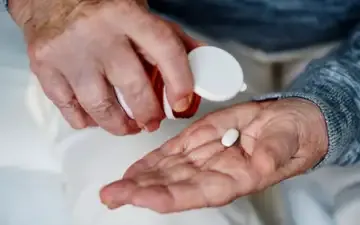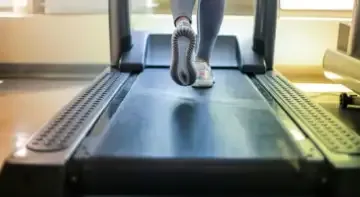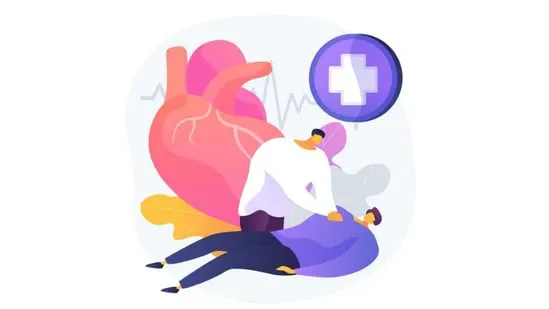He added a heart failure is a chronic condition where the heart muscle is damaged and can't pump enough blood to meet the body's needs.
Heart attack vs heart failure
He explained, "A heart attack involves a sudden blockage of blood flow to the heart, while heart failure is a gradual condition where the heart can't pump blood effectively. Etiologically, a wise heart attack is a single causative factor causing choking and thereby cessation of flow to the myocardium vs the coronary artery. On the other hand, heart failure has a multitude of causes, like dietary deficiency, alcoholism, viral infection, and genetic factors."
Dr Mahesh Agarwal, consultant-interventional cardiologist, Manipal Hospital, Bhubaneswar, added a heart attack may be a cause of sudden heart arrest, but not vice versa.
"Sudden cardiac arrest is a clinical condition where a person suddenly loses consciousness, collapses, and falls, and their breathing stops, pulse is not felt. If not attended to within seconds, it leads to immediate death. A person will not have chest pain. It occurs when the heart stops beating suddenly and unexpectedly due to disturbances in the heart's electrical system. The heart either beats very fast or very slow, so that it is unable to pump out enough blood to supply the brain, lungs, and other organs of the body," he said.
He further shared, "Whereas a heart attack is a clinical condition, where a person has chest pain, sweating, shortness of breath, rarely she or he loses her or his consciousness, or her or his breathing will stop unless the heart attack leads to cardiac arrest. It usually occurs due to a sudden blockage in the blood vessel (coronary artery) supplying to heart muscle. A heart attack may be a cause of sudden heart arrest, but not vice versa."
 To stay safe, consider these precautions
To stay safe, consider these precautions
According to Dr Nath, the two conditions are the most common heart ailments in the modern era. "Precautions for both focus on a heart-healthy lifestyle: quitting smoking, maintaining a healthy weight, eating a balanced diet low in salt and saturated fats, exercising regularly, and managing high blood pressure and diabetes," he said.
However, in the case of a heart attack, Dr Nath said immediate medical attention is crucial. Meanwhile, for heart failure, he shared that long-term management involves lifestyle changes, medications, and potentially devices or surgery to support the heart's function.
Heart attack and heart failure treatment vs prevention
While precautions are similar, the measures differ. Dr Nath explained: "For example, a heart attack is a medical emergency that requires an immediate and rapid response to restore blood flow. Heart failure is a chronic condition that requires chronic management, including, but not limited to, lifestyle changes, medication, and devices to assist with pumping the heart more effectively (example: pacemaker or defibrillator)."
According to Dr Agarwal, whenever a person has a sudden heart attack, immediate cardiopulmonary resuscitation (CPR) should be started. "CPR means you have to resuscitate both heart and lungs, Heart has to be resuscitate by chest compression at a rate of about 100- 120/min with lungs resuscitation by mouth to mouth breathing at ratio of 30:2. CPR should be continued till Defibrillator or emergency medical service provider available, Survival can be as high as 90 percent if treatment is initiated within the first minutes. The rate decreases by about 10 percent for each minute longer."
He added that most of the people who have sudden cardiac arrest usually have a previous heart illness, like a previous heart attack, a decrease in pumping power of the heart, like cardiomyopathy, valvular disease, or a structural or electrical defect in the heart from birth. Sometimes, blood electrolyte disturbances of sodium, potassium, and drug abuse also lead to sudden cardiac death, Dr Agarwal said.
He added, "To prevent sudden cardiac arrest, one has to be properly examined with blood tests, ECG, Echocardiography, and Coronary angiography to find out the defects, and accordingly treated by medication, angioplasty/stenting, or bypass surgery. Sometimes patients need implantation of an AICD device (Automated IntraCardiac Defibrillator), which recognises the abnormal electrical impulse of the heart and corrects it by itself and prevents death."
 Specific precautions for heart attacks
Specific precautions for heart attacks
Here is what Dr Nath suggests:
⦿ Quit smoking: and avoid tobacco.
⦿ Eat a heart-healthy diet: rich in fruits, vegetables, and whole grains, while limiting saturated and trans fats, cholesterol, and sodium.
⦿ Maintain a healthy weight.
⦿ Exercise regularly.
⦿ Manage stress.
⦿ Control blood pressure and cholesterol.
⦿ Manage diabetes.
⦿ Get enough sleep.
⦿ Get regular medical check-ups: to catch risk factors early.
Specific precautions for heart failure
Here is what Dr Nath suggests:
⦿ Stop smoking.
⦿ Follow a heart-healthy diet, including reducing salt and fat intake.
⦿ Lose weight: if overweight or obese.
⦿ Engage in regular physical activity, as advised by a medical professional.
⦿ Manage comorbidities: for example, hypertension and diabetes.
⦿ Adhere to prescribed medications, such as diuretics, to aid in reducing excess fluid.
⦿ Get regular check-ups: to monitor the condition.

 To stay safe, consider these precautions
According to Dr Nath, the two conditions are the most common heart ailments in the modern era. "Precautions for both focus on a heart-healthy lifestyle: quitting smoking, maintaining a healthy weight, eating a balanced diet low in salt and saturated fats, exercising regularly, and managing high blood pressure and diabetes," he said.
However, in the case of a heart attack, Dr Nath said immediate medical attention is crucial. Meanwhile, for heart failure, he shared that long-term management involves lifestyle changes, medications, and potentially devices or surgery to support the heart's function.
Heart attack and heart failure treatment vs prevention
While precautions are similar, the measures differ. Dr Nath explained: "For example, a heart attack is a medical emergency that requires an immediate and rapid response to restore blood flow. Heart failure is a chronic condition that requires chronic management, including, but not limited to, lifestyle changes, medication, and devices to assist with pumping the heart more effectively (example: pacemaker or defibrillator)."
According to Dr Agarwal, whenever a person has a sudden heart attack, immediate cardiopulmonary resuscitation (CPR) should be started. "CPR means you have to resuscitate both heart and lungs, Heart has to be resuscitate by chest compression at a rate of about 100- 120/min with lungs resuscitation by mouth to mouth breathing at ratio of 30:2. CPR should be continued till Defibrillator or emergency medical service provider available, Survival can be as high as 90 percent if treatment is initiated within the first minutes. The rate decreases by about 10 percent for each minute longer."
He added that most of the people who have sudden cardiac arrest usually have a previous heart illness, like a previous heart attack, a decrease in pumping power of the heart, like cardiomyopathy, valvular disease, or a structural or electrical defect in the heart from birth. Sometimes, blood electrolyte disturbances of sodium, potassium, and drug abuse also lead to sudden cardiac death, Dr Agarwal said.
He added, "To prevent sudden cardiac arrest, one has to be properly examined with blood tests, ECG, Echocardiography, and Coronary angiography to find out the defects, and accordingly treated by medication, angioplasty/stenting, or bypass surgery. Sometimes patients need implantation of an AICD device (Automated IntraCardiac Defibrillator), which recognises the abnormal electrical impulse of the heart and corrects it by itself and prevents death."
To stay safe, consider these precautions
According to Dr Nath, the two conditions are the most common heart ailments in the modern era. "Precautions for both focus on a heart-healthy lifestyle: quitting smoking, maintaining a healthy weight, eating a balanced diet low in salt and saturated fats, exercising regularly, and managing high blood pressure and diabetes," he said.
However, in the case of a heart attack, Dr Nath said immediate medical attention is crucial. Meanwhile, for heart failure, he shared that long-term management involves lifestyle changes, medications, and potentially devices or surgery to support the heart's function.
Heart attack and heart failure treatment vs prevention
While precautions are similar, the measures differ. Dr Nath explained: "For example, a heart attack is a medical emergency that requires an immediate and rapid response to restore blood flow. Heart failure is a chronic condition that requires chronic management, including, but not limited to, lifestyle changes, medication, and devices to assist with pumping the heart more effectively (example: pacemaker or defibrillator)."
According to Dr Agarwal, whenever a person has a sudden heart attack, immediate cardiopulmonary resuscitation (CPR) should be started. "CPR means you have to resuscitate both heart and lungs, Heart has to be resuscitate by chest compression at a rate of about 100- 120/min with lungs resuscitation by mouth to mouth breathing at ratio of 30:2. CPR should be continued till Defibrillator or emergency medical service provider available, Survival can be as high as 90 percent if treatment is initiated within the first minutes. The rate decreases by about 10 percent for each minute longer."
He added that most of the people who have sudden cardiac arrest usually have a previous heart illness, like a previous heart attack, a decrease in pumping power of the heart, like cardiomyopathy, valvular disease, or a structural or electrical defect in the heart from birth. Sometimes, blood electrolyte disturbances of sodium, potassium, and drug abuse also lead to sudden cardiac death, Dr Agarwal said.
He added, "To prevent sudden cardiac arrest, one has to be properly examined with blood tests, ECG, Echocardiography, and Coronary angiography to find out the defects, and accordingly treated by medication, angioplasty/stenting, or bypass surgery. Sometimes patients need implantation of an AICD device (Automated IntraCardiac Defibrillator), which recognises the abnormal electrical impulse of the heart and corrects it by itself and prevents death."
 Specific precautions for heart attacks
Here is what Dr Nath suggests:
⦿ Quit smoking: and avoid tobacco.
⦿ Eat a heart-healthy diet: rich in fruits, vegetables, and whole grains, while limiting saturated and trans fats, cholesterol, and sodium.
⦿ Maintain a healthy weight.
⦿ Exercise regularly.
⦿ Manage stress.
⦿ Control blood pressure and cholesterol.
⦿ Manage diabetes.
⦿ Get enough sleep.
⦿ Get regular medical check-ups: to catch risk factors early.
Specific precautions for heart failure
Here is what Dr Nath suggests:
⦿ Stop smoking.
⦿ Follow a heart-healthy diet, including reducing salt and fat intake.
⦿ Lose weight: if overweight or obese.
⦿ Engage in regular physical activity, as advised by a medical professional.
⦿ Manage comorbidities: for example, hypertension and diabetes.
⦿ Adhere to prescribed medications, such as diuretics, to aid in reducing excess fluid.
⦿ Get regular check-ups: to monitor the condition.
Specific precautions for heart attacks
Here is what Dr Nath suggests:
⦿ Quit smoking: and avoid tobacco.
⦿ Eat a heart-healthy diet: rich in fruits, vegetables, and whole grains, while limiting saturated and trans fats, cholesterol, and sodium.
⦿ Maintain a healthy weight.
⦿ Exercise regularly.
⦿ Manage stress.
⦿ Control blood pressure and cholesterol.
⦿ Manage diabetes.
⦿ Get enough sleep.
⦿ Get regular medical check-ups: to catch risk factors early.
Specific precautions for heart failure
Here is what Dr Nath suggests:
⦿ Stop smoking.
⦿ Follow a heart-healthy diet, including reducing salt and fat intake.
⦿ Lose weight: if overweight or obese.
⦿ Engage in regular physical activity, as advised by a medical professional.
⦿ Manage comorbidities: for example, hypertension and diabetes.
⦿ Adhere to prescribed medications, such as diuretics, to aid in reducing excess fluid.
⦿ Get regular check-ups: to monitor the condition.